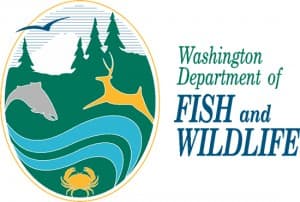Hunters, Anglers, Firefighters Hope for Rain in Washington’s Forecast
OutdoorHub 09.30.12

Some of Washington’s most popular hunting seasons get under way in October, when hunters take to the field for deer, ducks, geese and other game birds. But state wildlife managers caution that persistent wildfires could make planning a hunt more challenging than usual in some areas of the state.
“Hunters need to keep a close eye on the fire reports and road closures, particularly in areas of central Washington,” said Matt Monda, a regional manager for the Washington Department of Fish and Wildlife (WDFW) based in Ephrata. “The situation calls for an extra amount of caution and preparation – at least until the rain moves in.”
In late September, WDFW closed three wildlife areas managed by the department in central Washington – Colockum, Quilomene and Whiskey Dick – but reopened them several days later after the immediate danger had passed.
Monda reminds hunters and others going afield that campfires are still prohibited – and some other activities restricted – on all lands owned or managed by WDFW. A notice of those restrictions, posted at http://wdfw.wa.gov/news/sep1812b/, includes links to updates issued by the U.S. Forest Service, the state Department of Emergency Management and other agencies involved in controlling wildfires burning around the state.
Aside from its virtues as a fire retardant, a good steady rain would also improve overall hunting conditions during the weeks ahead, said Jerry Nelson, WDFW’s deer and elk specialist. Both species benefitted from the mild winter last year, but bone-dry leaves and branches make it difficult for hunters to stalk their prey, he said.
“Until we get some rain, it’s like walking on cornflakes out there,” Nelson said.
The general deer-hunting season for hunters using modern-firearms starts Oct. 13 in designed areas throughout the state, falling on the heels of a muzzleloader season that ends Oct. 7.
Salmon, too, would benefit from some rain, because that is their signal to move upriver, said John Long, WDFW salmon manager. Without a push from precipitation, salmon – particularly coho salmon – can remain “bunched up” in the lower ends of rivers and may not be able to take advantage of the spawning habitat available to them upstream.
“That’s not good for salmon, and it’s not good for salmon anglers either,” Long said. “Once we see some rainfall, we’ll also see fresh fish moving up the rivers that are more inclined to bite.”

